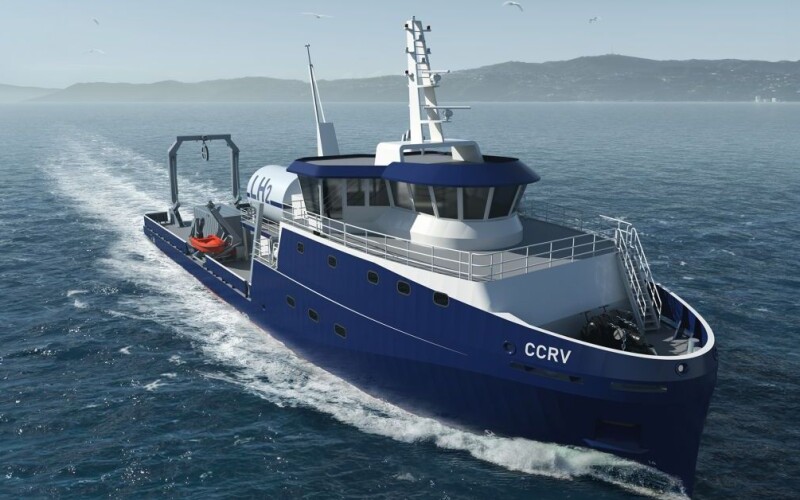The Scripps Institution of Oceanography at UC San Diego is soliciting proposals to build a hydrogen-hybrid coastal class research vessel (CCRV). The Glosten-designed vessel will use hydrogen power for 75% of operations, with diesel-electric generators for extended missions.
In June, the American Bureau of Shipping (ABS) approved the vessel’s preliminary design. The 125' CCRV will replace the research vessel Robert Gordon Sproul, which has been in service for 43 years.
California has allocated $35 million to UC San Diego for the vessel’s design and construction. Scripps noted the CCRV will include acoustic Doppler current profilers, seafloor mapping systems, midwater fishery imaging systems, biological and geological sampling tools, and drone support. Research focus areas include fisheries, harmful algal blooms, El Niño storms, atmospheric rivers, sea-level rise, ocean acidification, and oxygen depletion zones.
The vessel is expected to accommodate up to 45 people for day trips and provide research opportunities through the UC Ship Funds Program. The hydrogen-hybrid propulsion system was conceptualized in a 2020 feasibility study by Sandia National Laboratories, Glosten, and Scripps, funded by the U.S. Department of Transportation’s Maritime Administration.
The RFP is can be found here.




